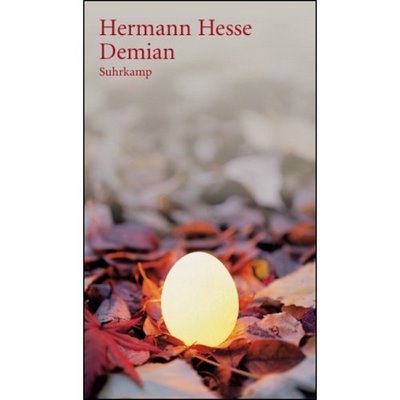Originally published under the pseudonym Emil Sinclair, also the name of the narrator, Herman Hesse’s Demian explores the workings of the mind and follows Sinclair on his journey towards moral maturation and self-discovery. Written at a time of war and despair, Demian reflects both Hesse’s struggle with depression and his attempt to make sense of the chaotic society around him.
Sinclair introduces himself in the beginning of the novel as a naïve, middle class boy who constantly finds refuge from the reality of society in what he calls the “world of light”, the tradition and innocence of his parents and childhood. After an encounter with a bully forces him to “steal” from his own piggy bank, however, Sinclair becomes aware of the darkness surrounding him. This watershed event not only exposes him to the corruption and injustice of the real world, but also marks the beginning of his friendship with Max Demian, an older schoolboy who wards off the bully without using physical force. Although he is initially shocked by Demian’s seemingly heretical views, Sinclair learns to question tradition and avoid blind faith, especially when biblical teachings are concerned, under his mentorship.
As Sinclair grows older and attends a boarding school away from home, his separation from the innocence he had found comfort in as a child pushes him into alcoholism as a means of escape from his miseries. However, he is saved when he finds a note from Demian saying “The bird fights its way out of the egg. The egg is the world. Who would be born must first destroy a world.” From this Sinclair grasps that to understand himself and cope with the ups and downs of his life, he must step out of his comfort zone and embrace both the pleasures and ills of society. Demian proves to be a sobering, yet hopeful first-person narrative of a young man attempting to find his identity in an ever changing environment.
In the midst of economic struggles, international crises, and random tragedies like the Colorado shooting, it may be easy to think that the world is unfair and cruel. However, Hesse’s novel makes the case that to truly discover oneself and deal with suffering, one must come to terms with the fact that life is comprised of both pain and joy.


